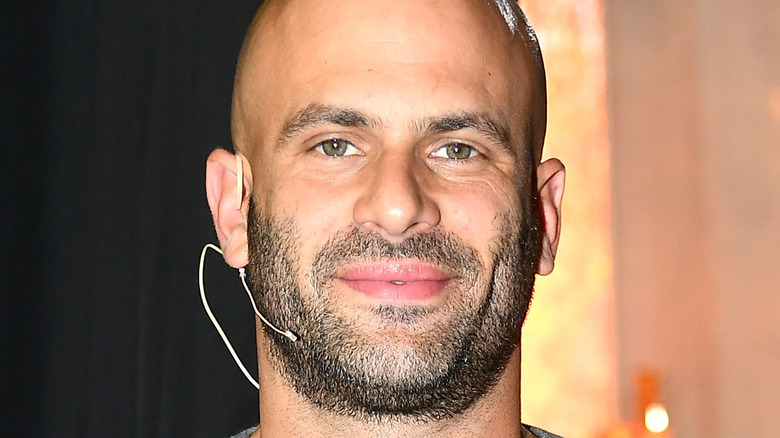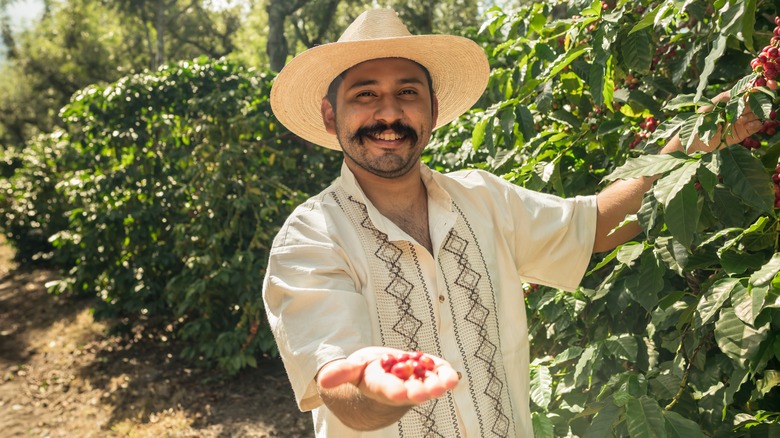A Former White House Chef Says Coffee Won't Be Available In 30 Years
Millions of people around the world are poised to become pretty cranky if one food expert's estimation turns out to be true. Sam Kass, who was the head chef during the Obama administration's White House tenure, is striking fear into the hearts of the masses with his claims that specific foods will be exceedingly scarce in the not-too-distant future, People reports. These foods, he claims, include beloved staples like chocolate, wine, rice, shellfish, and even — gasp – coffee!
This is more than just a bummer to people who like the taste and caffeine boost from their morning cup of Joe. The global coffee market was worth $107.93 billion in 2021, and is expected to rise to $167.51 billion by the year 2027, says Global Newswire. So, it's not that much of a stretch to assume that strain on the product will adversely affect the global economy as well.
Coffee is a necessity for most Americans to start their day. In fact, roughly three-quarters of Americans enjoy at least the occasional cup, and 53% drink a minimum of one cup per day, according to YouGovAmerica. Although a jolt of caffeine is often what people are searching for when they start sipping, many people really enjoy the taste, and others enjoy the social aspect of slowly savoring the beverage around a table with family or friends, says Coffee.org.
Here's why coffee might wind up in short supply
Sam Kass explained in a recent speech that the world's coffee supply is under threat because of increasingly dire climate change issues, per People. "Food and agriculture is the number two driver of greenhouse gas emissions globally and uses about 70% of the world's waters," he said. "It's the number one driver of deforestation, land use change. It's really at the center of a lot of these environmental issues."
In fact, a study published in early 2022 in the journal Plos One says that climate change will so greatly impact current coffee-growing areas (like those in South America and Central America) that coffee plants won't fare nearly as well. This could be a reality as soon as 2050.
The study says that hope is not lost, however, as long as "adaptation measures" are taken to reverse course and keep conditions optimal for crop production (the study also looked at avocados and cashews). Such steps to improve conditions can include adapting manufacturing/farming methods, breeding plants that are hardier in higher temperatures and/or are drought-resistant, and changing production locations. In Kass's opinion, people also need to eat less red meat and food should be "grown in a regenerative way," per People. These might be big asks, but something tells us that if you threaten people's coffee they're likely to do what they've gotta do to keep it pouring.

